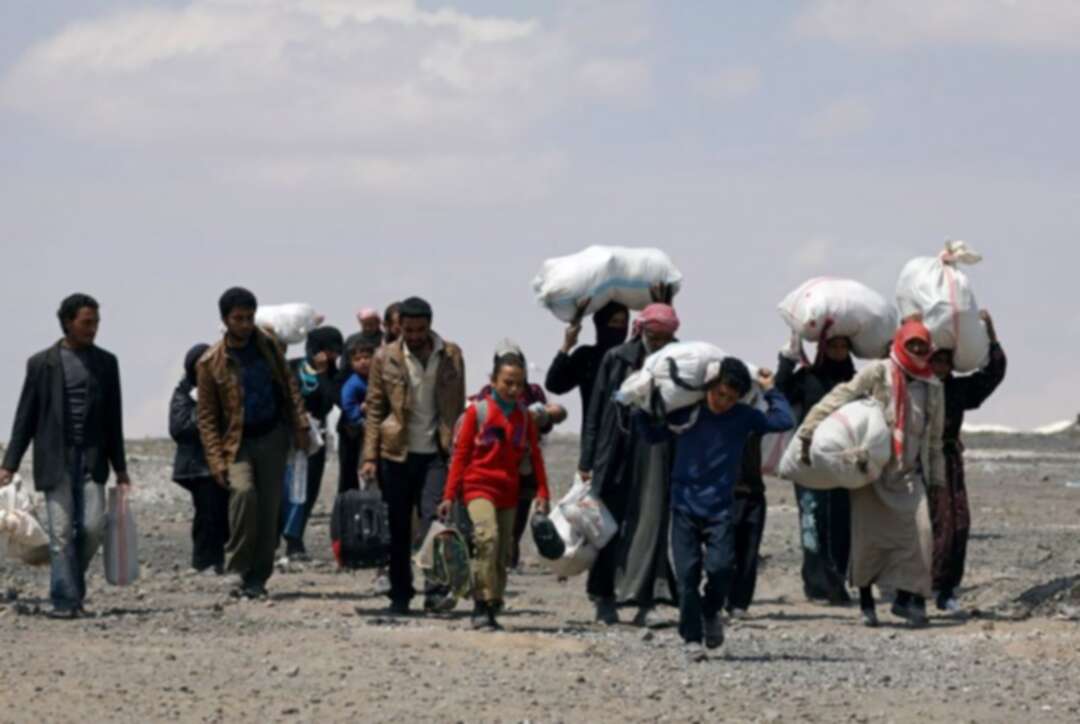-
Syrian children spark debate on polygamy in Austria
-
This case reveals the legal and cultural challenges Europe faces when dealing with social practices acceptable in refugee countries, requiring a reconsideration of family reunification mechanisms and

The Austrian public has been discussing a controversial case where a Syrian man, born in 1992, who was granted asylum, applied to the Federal Office for Immigration and Asylum (BFA) to allow his eight children and wife to join him in Austria.
This situation raises a complex legal and cultural issue, highlighting the challenges European societies face when refugee practices clash with local values.
DNA tests were conducted to verify the children's lineage, confirming that he is indeed their biological father. Up to this point, the procedures appeared standard.
This step reflects the Austrian authorities' commitment to verifying family relationships in family reunification cases, an approach followed by most European countries to prevent immigration law manipulation.
The children's birth dates raised significant concerns among the authorities, as all eight children were born within a short period between January 2019 and mid-2022.
The close timing of these births raised logical questions about how this number of children could have been conceived in such a short span of three and a half years, prompting further inquiries from the relevant authorities.
When questioned by the BFA, the Syrian refugee explained that he is married to two women in his home country, with four children from his "second wife." He stated that polygamy is legally allowed in Syria, with a man permitted to have up to four wives.
It is important to note that the legal systems of most European countries, including Austria, do not recognize polygamy and consider it illegal and a violation of public order, creating a conflict with the legal systems of some refugee origin countries.
After reviewing the case, the request to reunite with the second wife was rejected, while the first wife and her children could have been allowed to enter Austria. However, the government had previously issued a halt on family reunification.
This position reflects Austria's shift toward tightening immigration and asylum policies, particularly in response to growing concerns about the impact of certain cultural practices of migrants on the social fabric.
Following this pause, the case could become legally complicated, as the children might rely on Article 8 of the European Convention on Human Rights to apply for family reunification with their biological mother. This could indirectly enable a form of polygamy to exist "through the back door," as it is referred to.
This dilemma places Austrian authorities in a difficult position between respecting the fundamental rights of children guaranteed by international conventions and preserving the local community's values.
On Wednesday, the Secretary-General of the Austrian People's Party (ÖVP), Nico Marchetti, stated that anyone who wishes to make polygamy socially acceptable has no place in Austria. He described the case of the Syrian refugee, who sought to bring his wife, children, and second wife to Austria under family reunification, as a "scandal" and "terrible."
Marchetti added, "If we allow polygamy to become legally accepted through backdoors, we risk jeopardizing all the societal progress our country has made over the past decades."
You May Also Like
Popular Posts
Caricature
BENEFIT Sponsors BuildHer...
- April 23, 2025
BENEFIT, the Kingdom’s innovator and leading company in Fintech and electronic financial transactions service, has sponsored the BuildHer CityHack 2025 Hackathon, a two-day event spearheaded by the College of Engineering and Technology at the Royal University for Women (RUW).
Aimed at secondary school students, the event brought together a distinguished group of academic professionals and technology experts to mentor and inspire young participants.
More than 100 high school students from across the Kingdom of Bahrain took part in the hackathon, which featured an intensive programme of training workshops and hands-on sessions. These activities were tailored to enhance participants’ critical thinking, collaborative problem-solving, and team-building capabilities, while also encouraging the development of practical and sustainable solutions to contemporary challenges using modern technological tools.
BENEFIT’s Chief Executive Mr. Abdulwahed AlJanahi, commented: “Our support for this educational hackathon reflects our long-term strategic vision to nurture the talents of emerging national youth and empower the next generation of accomplished female leaders in technology. By fostering creativity and innovation, we aim to contribute meaningfully to Bahrain’s comprehensive development goals and align with the aspirations outlined in the Kingdom’s Vision 2030—an ambition in which BENEFIT plays a central role.”
Professor Riyadh Yousif Hamzah, President of the Royal University for Women, commented: “This initiative reflects our commitment to advancing women in STEM fields. We're cultivating a generation of creative, solution-driven female leaders who will drive national development. Our partnership with BENEFIT exemplifies the powerful synergy between academia and private sector in supporting educational innovation.”
Hanan Abdulla Hasan, Senior Manager, PR & Communication at BENEFIT, said: “We are honoured to collaborate with RUW in supporting this remarkable technology-focused event. It highlights our commitment to social responsibility, and our ongoing efforts to enhance the digital and innovation capabilities of young Bahraini women and foster their ability to harness technological tools in the service of a smarter, more sustainable future.”
For his part, Dr. Humam ElAgha, Acting Dean of the College of Engineering and Technology at the University, said: “BuildHer CityHack 2025 embodies our hands-on approach to education. By tackling real-world problems through creative thinking and sustainable solutions, we're preparing women to thrive in the knowledge economy – a cornerstone of the University's vision.”
opinion
Report
ads
Newsletter
Subscribe to our mailing list to get the new updates!






















